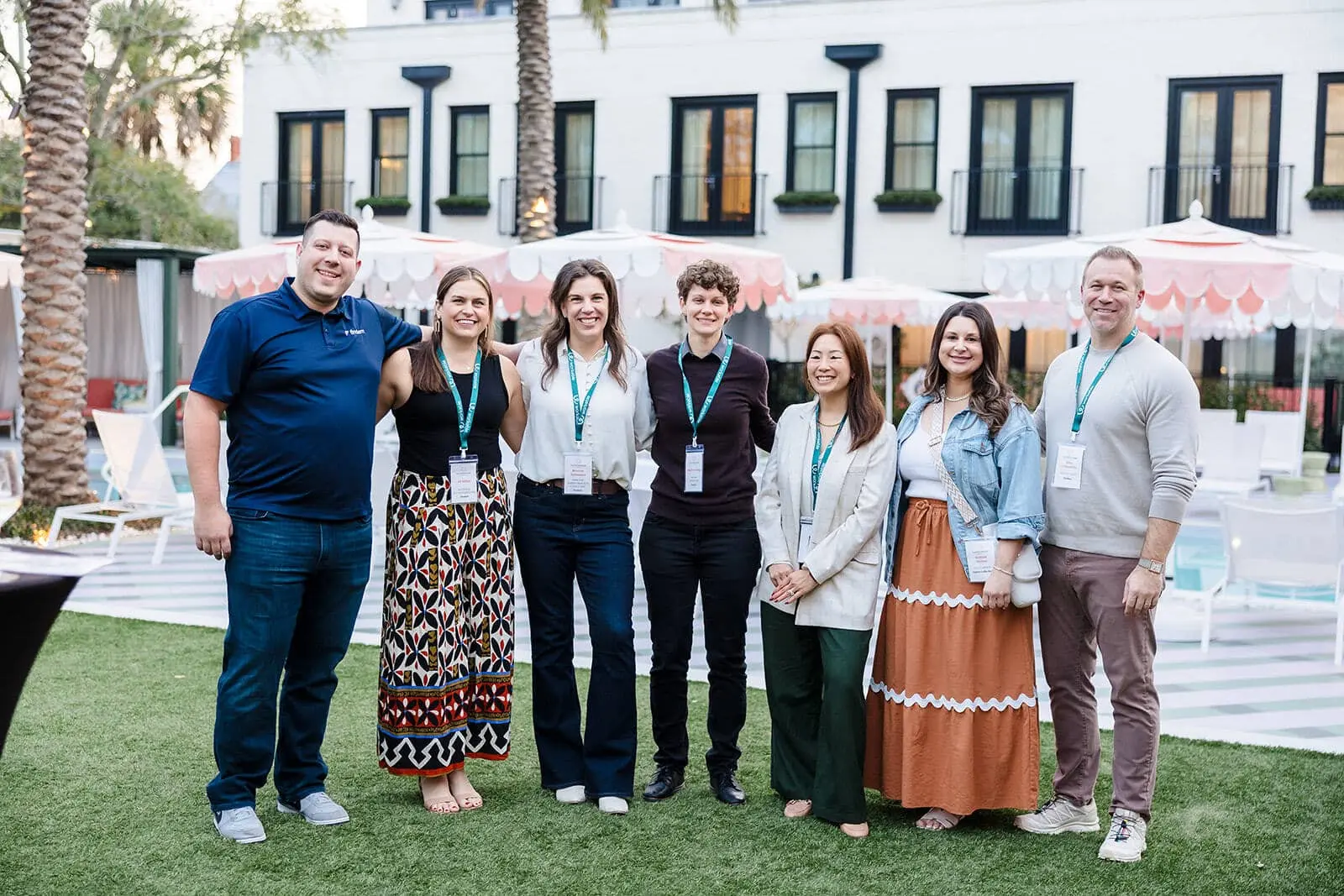.svg)
The data is in: New research reveals the truth about AI hiring bias
.svg)

Headlines about AI in talent acquisition have been all over the board. Some news outlets praise a "balanced use" of AI as beneficial to job seekers and recruiters alike. But legal cases like Mobley v. Workday have talent leaders questioning whether AI in hiring is actually worth the risk. Meanwhile, 75% of HR leaders cite bias as their top concern when evaluating AI tools — second only to data privacy.
But what if the data doesn't actually back up the fear and distrust? What if AI, when implemented responsibly, can actually deliver fairer outcomes than traditional human-led hiring?
That's exactly what new research from Warden AI reveals, and the findings could fundamentally shift how talent acquisition leaders think about AI adoption.
A new, data-driven review of AI bias in talent acquisition
We recently contributed to The State of AI Bias in Talent Acquisition 2025, a comprehensive report by Warden AI that moves the conversation from fear-based speculation to evidence-based reality.
The research includes:
- 150+ audits of high-risk AI systems used in talent acquisition
- 1M+ test samples analyzed for bias and fairness
- Survey data from HR tech vendors and practitioners
- Human bias benchmarks combining academic and industry studies
- Analysis of 100+ public transparency reports from vendors
What does the data actually reveal about AI bias?
According to the research, AI systems outperform humans on fairness metrics, scoring an average of 0.94 compared to 0.67 for human-led hiring. Even more striking: AI systems deliver up to 39% fairer treatment for women and 45% fairer treatment for racial minority candidates compared to human decision-making.
These findings open the door to a new line of thinking, representing a complete reversal of the dominant narrative around AI bias in hiring. Other takeaways from the report include:
- 85% of audited AI models meet industry fairness thresholds
- AI bias is measurable, auditable, and correctable — unlike unconscious human bias
- When designed with responsible AI principles, automated systems can actually reduce discrimination
The science behind "slow thinking fast"
This breakthrough lies in understanding how AI can interrupt human bias patterns. Recent research published by Findem's Tina Shah Paikeday in California Management Review demonstrates that AI enables a shift from fast, unconscious decision-making to slow, conscious decision-making.
According to the research, humans naturally rely on "System 1" thinking — fast, unconscious, emotion-driven decisions that helped our ancestors survive but create problems in modern hiring contexts. AI forces us into "System 2" thinking — slow, conscious, logic-driven analysis — but at machine speed.
A real-world experiment illustrates these thinking models in action. When participants searched for board candidates using three approaches — biased AI, debiased AI, and traditional databases — the debiased AI delivered both the highest diversity AND the highest quality candidates, while being the fastest method.
The debiased AI worked because it forced evaluators to compare each candidate against the same set of skills, rather than relying on quick, unconscious judgments based on names, schools, or other proxies.
Findem’s approach to responsible AI
At Findem, we've been intentional about responsible AI from our founding. Our approach aligns with what the research shows works in preventing bias.
Human-centered design
We don't replace human decision-makers — we augment them. By automating the "IQ" part of talent processes, we free up time for the "EQ" work that recruiters do best.
BI-first strategy
Our AI assist infrastructure is layered over a robust business intelligence platform. We prioritize data collection, analysis, and presentation first, then use AI to learn, reason, and make predictions with trusted outcomes.
Built-in guardrails
We’ve built in guardrails at every level: humans oversee decisions, our systems are always monitored and auditable, and we protect against AI “hallucinations” with human-in-the-loop checks at every step.
No subjective evaluations
Critically, AI is never used to make subjective evaluations of people. Findem is a searching and matching platform, not a candidate evaluation platform. We don't automatically advance or reject applicants.
Real-world impact: Going beyond the numbers
The implications extend far beyond statistics. AI has revolutionized the way we discover talent by moving beyond traditional networks and personal connections. These tools have the unique ability to quickly and efficiently uncover top talent from untapped networks and backgrounds, breaking free from outdated markers like 'Latino-sounding' names or other obvious identifiers.
This expansion of talent pools addresses a critical challenge: companies spend $8 billion annually on unconscious bias training that largely doesn't work. Instead of trying to train humans out of survival-wired biases, we can use AI to systematically apply fair, consistent evaluation criteria.
The competitive advantage of getting AI right
While competitors struggle with bias concerns, forward-thinking talent teams are gaining significant advantages:
- Efficiency gains: Automating manual, repetitive tasks frees up strategic capacity
- Better outcomes: More consistent, fair decision-making processes
- Risk mitigation: Auditable, explainable AI systems provide legal protection
- Talent pool expansion: Reduced bias means accessing previously overlooked candidates
Prepare your team for the next wave of AI in talent acquisition
The convergence of rigorous research, real-world experimentation, and responsible implementation creates an unprecedented opportunity. We now have evidence that AI, when designed and deployed thoughtfully, can deliver the best of both worlds in talent acquisition: excellence and diversity simultaneously.
At Findem, we're proud to be part of research that moves the industry forward. Our commitment to the responsible use of AI is rooted in compliance, with a vision of unlocking the full potential of AI-powered talent acquisition and building more diverse, high-performing teams.
The choice is clear: embrace AI as a bias interruptor, or continue spending billions on solutions that don't work while competitors gain advantages through fairer systems.
Ready to explore how responsible AI can transform your talent strategy? Download the full State of AI Bias in Talent Acquisition 2025 report and discover how Findem's responsible AI approach can help you build fairer, more effective hiring processes.





